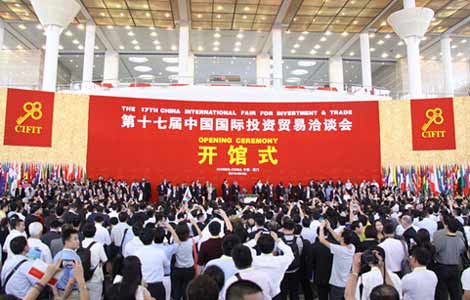Human-centered urbanization to revitalize economy
Updated: 2013-09-10 15:41
(Xinhua)
|
||||||||
An annual renovation of 2 million to 3 million dilapidated homes can bring about investment of 200 billion yuan to 300 billion yuan, adding a 3-percentage points increase in investment growth, the China International Capital Corporation Ltd. has forecast.
A cabinet document released in July called for greater efforts to speed up improvements to run-down neighborhoods, and pledged greater policy aids including enhancing credit support and encouraging private investment.
Wang Zhong, governor of China Development Bank's Sichuan branch, told Xinhua that the branch signed an agreement with the Chengdu municipal government earlier this year to specifically support Chengdu's new-style urbanization. The branch will offer 100 billion yuan of credit over the next five years to help with the city's investment plans on projects such as a public transit system, urban construction and rural-urban integration.
A report by the United Nations Development Programme in August said that urban development served as the main force driving China's economy in the past two decades, and will continue to do so in the coming decades. It forecast that the proportion of China's population living in cities will rise to 70 percent, resulting in an additional 310 million new city dwellers.
China's urban population hit 690 million and accounted for 51.27 percent of its total population in 2011, the first time more people lived in cities than in the countryside.
But the UNDP report said China's urbanization comes at a critical time with pressure accumulating in matters such as the efficient use of natural and energy resources, development of urban governance systems, employment, transportation, housing and access to basic social services, security, and the livelihoods of migrant workers.
In Alley 14, the local government is still negotiating terms with residents, with 15 percent of them remaining unconvinced about whether to sign an agreement under the renovation plan. They fear their interests may be harmed and complain the renovation plan is not completely fair and open.
"I am afraid we could be the victims. The government officials are pushing us to agree, but why don't they just give us the money and we renovate our homes by ourselves?" said a resident who declined to provide his name for fear of coming to the attention of officials, who in turn talk of "sunshine projects" and absolute openness.
Shi Ziqing, meanwhile, is in favor of the renovation project. Having already signed an agreement, she has been working to persuade her neighbors to do the same.
Wu Shaofu, vice director of the housing management department of Wuhou District in Chengdu, said attentions have lately turned to run-down areas of the city scattered in isolated spots. Compared to large areas of old shingle-roofed houses, these smaller neighborhoods hold little commercial value for development and pose challenges.
For Wu, how he uses a fair approach to convince Alley 14 residents of the true benefits of renovation will directly determine the outcome of their new home dreams. And ultimately, it will impact upon such projects' economy-boosting efforts when they are rolled out across the country.
Most Viewed
Editor's Picks

|

|

|

|

|

|
Today's Top News
August economic data suggest recovery
Is Alibaba using a 'negotiating ploy' with HK?
Diplomacy gets under way on Korean front
China loses nearly 20% of its grains
China's premier warns on Syria
Trending news across China
AIDS is biggest killer among infectious diseases
China vaults to world's 3rd-largest investor
US Weekly

|

|














